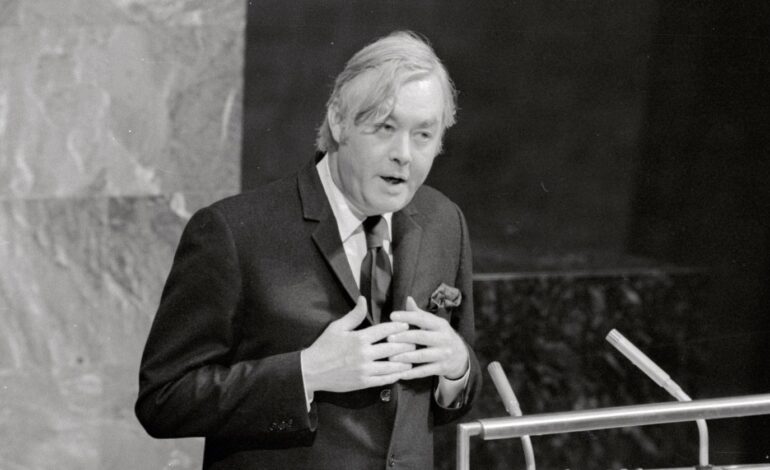UN’s Controversial ‘Zionism is Racism’ Resolution Remembered

On December 10, 1975, the United Nations General Assembly passed Resolution 3379, declaring that “Zionism is a form of racism and racial discrimination.” This controversial decision was driven by a coalition of countries, including leaders such as Uganda’s former president, Idi Amin, alongside members of the Soviet bloc. U.S. Ambassador Pat Moynihan famously condemned the resolution, stating that it granted “the abomination of antisemitism” an appearance of international legitimacy.
The resolution’s adoption was particularly poignant, falling on the anniversary of Kristallnacht, a violent pogrom against Jews in Nazi Germany that foreshadowed the Holocaust. The General Assembly approved the resolution with a vote of 72 in favor, 35 against, and 32 abstentions. Over the years, this declaration has been a source of significant controversy and debate regarding its implications for Jewish identity and the state of Israel.
A pivotal change occurred with the end of the Cold War. In 1991, the UN General Assembly repealed Resolution 3379, with a substantial majority voting 111 to 25 to overturn the earlier decision. This repeal marked a significant shift in international sentiment towards Zionism, acknowledging it as a national liberation movement for the Jewish people.
As the world reflects on the 50th anniversary of this resolution, new political figures are emerging in the landscape of international relations. One such figure is Zohran Mamdani, the recently elected mayor of a key locality. Mamdani’s understanding of this historical context may be critical as he navigates his role within a complex global framework that still grapples with themes of identity and nationalism.
The legacy of Resolution 3379 continues to resonate, serving as a reminder of the struggles faced by Jewish communities worldwide. The juxtaposition of past and present challenges in addressing antisemitism and advocating for Jewish rights remains relevant today, as political leaders like Mamdani take the stage in a world that still confronts the shadows of its history.
Understanding the implications of such historic resolutions is crucial for contemporary leaders, as they shape policies and engage in international discourse. The lessons learned from the past can inform better approaches to coexistence and mutual respect among diverse communities.






